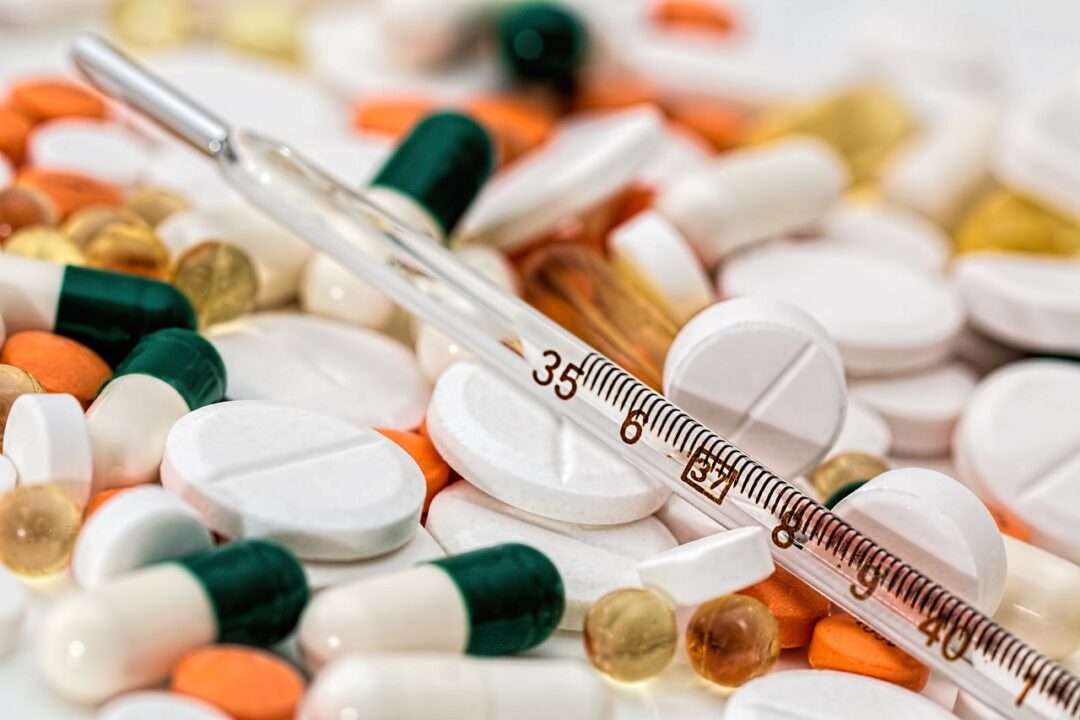By Jennifer McDougall
Prescription drug addiction is a growing public health concern affecting millions of people worldwide. While these medications can provide immense relief when used correctly, they carry significant risks of abuse and dependence when misused. Breaking free from prescription drug addiction is a challenging but achievable process with the right support and treatment. In this article, we’ll explore the dangers of prescription drug addiction, how to recognize the signs, and the most effective treatment options to achieve lasting recovery.
The Rise of Prescription Drug Addiction
Prescription drug addiction is a form of substance use disorder (SUD) that can develop when individuals misuse prescribed medications. This misuse may involve taking higher doses than recommended, using someone else’s prescription, or taking the medication for non-medical reasons, such as to achieve a euphoric high.
According to the National Institute on Drug Abuse (NIDA), nearly 16 million Americans misused prescription medications in 2021. Opioids, benzodiazepines, and stimulants are the most commonly misused classes of drugs. The misuse of these medications often leads to dependence, addiction, and in some cases, fatal overdose.
The opioid epidemic has been particularly devastating in the United States, with over 100,000 overdose deaths reported in 2022 alone. However, prescription drug addiction is not limited to opioids—stimulants like Adderall and benzodiazepines such as Xanax are also highly addictive when misused.
Commonly Misused Prescription Drugs
Understanding the specific types of prescription drugs that are most frequently abused is essential for recognizing the risks. The three main categories of prescription drugs that are most often misused include:
1. Opioids
Opioids are prescribed to manage pain, but they carry a high potential for abuse. Common opioids include:
- Oxycodone (OxyContin, Percocet)
- Hydrocodone (Vicodin)
- Fentanyl
- Morphine
Opioid addiction can develop quickly due to the powerful feelings of euphoria they produce. As tolerance builds, users may take higher doses, leading to dependence and increasing the risk of overdose.
2. Benzodiazepines
Benzodiazepines are prescribed to treat anxiety, insomnia, and seizures, but they also have sedative effects that can be habit-forming. Common benzodiazepines include:
- Alprazolam (Xanax)
- Diazepam (Valium)
- Clonazepam (Klonopin)
Long-term use or misuse of benzodiazepines can lead to dependence, withdrawal symptoms, and increased anxiety, creating a cycle of continued abuse.
3. Stimulants
Stimulants are often prescribed for attention-deficit/hyperactivity disorder (ADHD) or narcolepsy. They increase focus and energy but are also misused for their euphoric effects. Common stimulants include:
- Amphetamine (Adderall)
- Methylphenidate (Ritalin, Concerta)
Stimulant misuse can lead to dangerously high heart rates, increased blood pressure, and psychological dependence.
Recognizing the Signs of Prescription Drug Addiction
Identifying the early signs of prescription drug addiction is critical for seeking timely treatment. If you or a loved one are misusing prescription medications, it’s important to recognize both the physical and behavioral symptoms that may indicate a problem.
Physical Signs of Prescription Drug Addiction:
- Increased tolerance: Needing higher doses of the medication to achieve the same effect.
- Withdrawal symptoms: Experiencing nausea, sweating, anxiety, or irritability when not using the medication.
- Drowsiness or sedation: Particularly common with opioids and benzodiazepines.
- Weight changes: Weight loss or gain depending on the type of medication.
- Slurred speech or impaired coordination: Often associated with sedative drugs.
- Insomnia or excessive energy: Depending on the drug type, users may experience either extreme fatigue or restlessness.
Behavioral Signs of Prescription Drug Addiction:
- Doctor shopping: Visiting multiple doctors to obtain additional prescriptions.
- Frequent refills: Running out of medication before the next refill is due.
- Neglecting responsibilities: Ignoring work, family, or social obligations due to drug use.
- Mood swings: Irritability, anxiety, or depressive episodes when not using the drug.
- Secretive behavior: Hiding drug use from family members or friends.
- Financial problems: Spending excessive money on obtaining prescriptions or illegal drugs.
Health Risks Associated with Prescription Drug Addiction
Prescription drug addiction poses numerous health risks, ranging from short-term side effects to long-term damage. The dangers vary depending on the type of drug being misused, but some of the most common risks include:
- Overdose: Overdosing on opioids, benzodiazepines, or stimulants can be fatal. Opioid overdoses, in particular, can cause respiratory depression, leading to death if not treated with naloxone.
- Organ damage: Long-term prescription drug misuse can lead to organ damage, including liver failure (from opioids and benzodiazepines) and cardiovascular issues (from stimulants).
- Mental health disorders: Prescription drug addiction can worsen mental health conditions like anxiety, depression, or even cause substance-induced psychosis.
- Increased risk of accidents: Misusing prescription drugs can impair coordination and judgment, leading to an increased risk of accidents, falls, or car crashes.
- Dependence and withdrawal: Stopping the drug abruptly after prolonged use can lead to intense withdrawal symptoms, which may require medical detox.
Breaking Free: Treatment Options for Prescription Drug Addiction
Breaking free from prescription drug addiction is possible with the right treatment. At Passages Malibu, we provide a holistic, non-12-step approach to help clients overcome addiction by addressing its root causes. Our treatment philosophy focuses on healing the mind, body, and spirit, empowering individuals to live healthier, drug-free lives.
Here are the key components of prescription drug addiction treatment:
1. Medical Detox
Medical detox is often the first step in the treatment process. During detox, clients are monitored by healthcare professionals to manage withdrawal symptoms safely. At Passages Malibu, we offer a comfortable, supervised detox environment that prioritizes client safety and well-being.
Opioid and benzodiazepine withdrawal, in particular, can be severe, causing symptoms like anxiety, insomnia, and physical discomfort. Medications may be prescribed during detox to ease these symptoms and reduce cravings.
2. Individual Therapy
Individual therapy is crucial for uncovering the root causes of addiction, such as unresolved trauma, mental health disorders, or emotional pain. At Passages Malibu, our licensed therapists work closely with clients to identify and heal these underlying issues. Therapies such as cognitive-behavioral therapy (CBT) and dialectical behavior therapy (DBT) help clients develop healthier coping mechanisms and change destructive thought patterns.
3. Holistic Therapies
Our holistic approach includes a wide range of therapies designed to restore balance and wellness. These include:
- Yoga and meditation: Helping clients manage stress, anxiety, and cravings through mindfulness practices.
- Acupuncture: Aiding in the detoxification process and reducing withdrawal symptoms.
- Nutritional therapy: Supporting physical health by addressing nutrient deficiencies caused by addiction.
- Fitness programs: Promoting physical strength and mental clarity during recovery.
4. Family Involvement
Addiction affects not only the individual but also their family and loved ones. Family therapy at Passages Malibu helps mend relationships, improve communication, and support a family-based recovery approach.
5. Relapse Prevention and Aftercare
Relapse prevention is a key focus in addiction recovery. At Passages Malibu, we equip clients with the tools they need to handle triggers, stress, and cravings once they leave treatment. Our aftercare programs provide ongoing support, counseling, and access to resources that help maintain sobriety long after treatment ends.
Why Choose Passages Malibu?
At Passages Malibu, we offer a luxurious and serene environment where individuals can focus on healing in a supportive, non-judgmental space. Our 10-person treatment team works closely with each client to create a personalized treatment plan, ensuring that every aspect of their recovery journey is tailored to their unique needs.
Unlike traditional programs, Passages Malibu follows a non-12-step philosophy that focuses on healing the root causes of addiction rather than labeling addiction as a lifelong disease. Our approach has helped thousands of individuals break free from prescription drug addiction and regain control of their lives.
Get Help Today at Passages Malibu
Prescription drug addiction can feel overwhelming, but recovery is possible. If you or a loved one is struggling with prescription drug addiction, Passages Malibu is here to help. Our holistic, individualized treatment program offers a path to lasting recovery by addressing the underlying issues that fuel addiction.
Contact Passages Malibu today to speak with our admissions team and learn how we can support you on your journey to a drug-free life.




